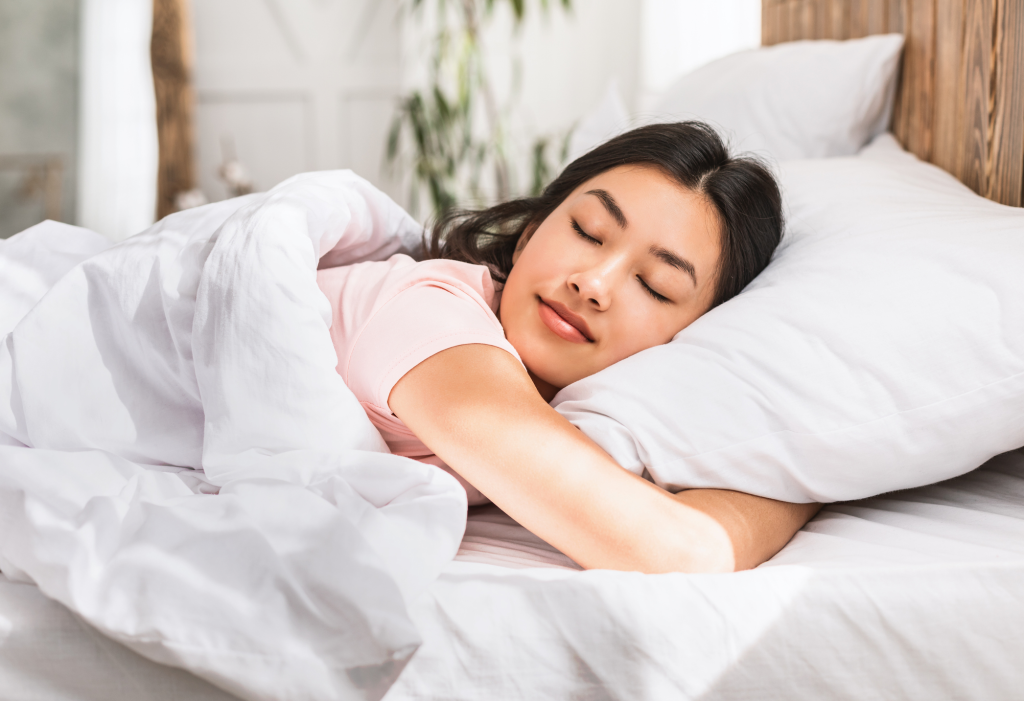In our increasingly busy and connected world, quality sleep has become something of a luxury rather than the biological necessity it truly is. Yet few aspects of health are as fundamental as sleep, influencing everything from cognitive function and emotional regulation to immune system strength and metabolic health. Despite its importance, roughly one-third of adults don’t get enough sleep according to the Centers for Disease Control and Prevention. The good news is that by understanding and implementing healthy sleep habits—often called sleep hygiene—most people can significantly improve both the quantity and quality of their rest.
Understanding Sleep’s Vital Role in Health
Before diving into specific habits, it’s worth understanding why sleep matters so profoundly for overall wellbeing. Sleep isn’t simply a passive state of rest but an active period during which the body performs essential maintenance and restoration processes.
Cognitive Function and Brain Health
During sleep, particularly during deeper stages, the brain:
- Consolidates memories, transferring information from short-term to long-term storage
- Clears out metabolic waste through the glymphatic system
- Processes emotional experiences
- Restores neural connections necessary for learning
Research consistently shows that even one night of poor sleep impairs attention, decision-making, reaction time, and creative thinking. Chronic sleep deprivation has been linked to increased risk of neurodegenerative conditions like Alzheimer’s disease.

Physical Health and Restoration
While we sleep, the body engages in crucial physical restoration:
- Release of growth hormone for tissue repair
- Strengthening of immune function
- Regulation of hunger hormones
- Reduction of inflammation
- Cardiovascular system rest and recovery
These processes explain why inadequate sleep correlates with increased risks of numerous health conditions, including heart disease, diabetes, obesity, and compromised immune function.
Emotional Wellbeing
Sleep and emotional health maintain a bidirectional relationship, with each significantly influencing the other:
- Sleep deprivation increases activity in the amygdala, heightening emotional reactivity
- Poor sleep reduces connectivity between the amygdala and prefrontal cortex, impairing emotional regulation
- Insufficient sleep correlates with increased risk of anxiety and depression
- Emotional distress often disrupts sleep, creating potential negative cycles
This relationship highlights why addressing sleep issues often produces ripple effects throughout emotional wellbeing.
Core Healthy Sleep Habits
The following evidence-based habits form the foundation of good sleep hygiene and can dramatically improve sleep quality when consistently implemented.
Establish Consistent Sleep Timing
Perhaps the single most powerful sleep habit is maintaining a regular sleep schedule:
- Go to bed and wake up at approximately the same times daily, even on weekends
- Limit variations to no more than 30-60 minutes when possible
- Align sleep timing with your natural chronotype (whether you’re naturally more morning or evening-oriented)
This consistency reinforces your body’s circadian rhythm—the internal clock regulating sleep-wake cycles—which in turn strengthens sleep quality and makes both falling asleep and waking up easier.
Create an Optimal Sleep Environment
The physical characteristics of your sleep space significantly influence sleep quality:
- Darkness: Use blackout curtains or a sleep mask to eliminate light, which suppresses melatonin production
- Temperature: Keep the room cool (around 65-68°F or 18-20°C for most people)
- Sound: Minimize noise disruptions with earplugs or white noise if necessary
- Comfort: Invest in a supportive mattress and pillows appropriate for your sleep position
- Air quality: Ensure good ventilation and consider air purification if allergies affect sleep
These environmental optimizations send clear signals to your brain and body that it’s time for sleep.
Mind Your Light Exposure
Light exposure powerfully influences circadian rhythms and sleep quality:
- Seek bright light exposure, preferably sunlight, within the first hour of waking
- Get outdoor light during the day to strengthen circadian signals
- Reduce blue light exposure from screens 1-2 hours before bedtime
- Use night mode settings on devices and consider blue-light blocking glasses in the evening
- Keep the bedroom completely dark or use very dim red night lights if necessary
These practices help maintain proper melatonin production timing, supporting both falling asleep and staying asleep.
Exercise Strategically
Regular physical activity strongly promotes better sleep quality, but timing matters:
- Aim for at least 30 minutes of moderate activity most days
- Complete vigorous exercise at least 1-2 hours before bedtime
- Consider gentle movement like stretching or yoga in the evening
- Use exercise to help regulate circadian rhythms, especially with morning activity
- Be consistent with exercise timing when possible
Research shows that regular exercisers enjoy deeper, more restorative sleep and fall asleep more quickly.

Monitor Food and Drink Consumption
What and when you consume can significantly impact sleep:
- Avoid caffeine within 8-12 hours of bedtime (varies by individual sensitivity)
- Limit alcohol, which disrupts normal sleep architecture even though it may induce drowsiness
- Finish eating large meals 2-3 hours before bed
- Stay hydrated during the day but taper fluid intake in the evening
- Consider small, sleep-friendly snacks if nighttime hunger disrupts sleep (combinations of complex carbohydrates and protein like whole grain crackers with cheese)
These dietary habits prevent discomfort and biochemical disruptions that might otherwise interfere with quality rest.
Develop a Relaxing Bedtime Routine
A consistent pre-sleep routine signals to your brain that it’s time to wind down:
- Begin 30-60 minutes before your intended sleep time
- Include calming activities like reading, gentle stretching, meditation, or warm baths
- Avoid stimulating or stressful activities and conversations
- Disconnect from work and problem-solving
- Maintain consistency in the sequence of activities
Over time, these routines create powerful associations that help trigger sleep onset more efficiently.
Addressing Common Sleep Disruptors
Beyond establishing positive habits, addressing common sleep disruptors can further improve sleep quality.
Managing Stress and Rumination
For many people, stress and racing thoughts represent primary sleep barriers:
- Practice “worry time” earlier in the evening to address concerns before bedtime
- Keep a notepad beside the bed to jot down thoughts that arise
- Learn and regularly practice relaxation techniques like deep breathing or progressive muscle relaxation
- Consider mindfulness meditation, which has shown significant benefits for sleep quality
- Develop clear mental boundaries between daytime productivity and nighttime rest
These approaches help quiet the mind and reduce the hyperarousal that often prevents sleep.
Limiting Sleep Disruptors in the Bedroom
The bedroom should serve primarily as a space for sleep and intimacy:
- Remove work materials, exercise equipment, and other non-sleep items
- Position clocks where you can’t easily see them during the night
- Keep pets off the bed if they disrupt sleep (though this benefit must be weighed against the comfort some find in pet presence)
- Consider separate blankets or even separate beds if partner movement significantly disrupts sleep
- Use the bed only for sleep and intimacy to strengthen mental associations
These boundaries help create stronger mental associations between your bed and sleep.
Managing Technology Use
Digital devices present particular challenges for sleep:
- Establish a “digital sunset” at least 30-60 minutes before bed
- Keep phones and other devices out of the bedroom (or at minimum, out of reach from bed)
- Use “do not disturb” settings during sleep hours
- Consider old-fashioned alarm clocks rather than using phones
- Create family agreements about technology use at night
These boundaries help prevent both the physiological effects of blue light and the psychological arousal that often accompanies device use.
Tailoring Sleep Habits to Different Life Stages
Sleep needs and challenges evolve throughout life, requiring adaptations to sleep habits.
For Young Adults
Young adults often struggle with competing priorities and social pressures:
- Recognize the increased sleep need (7-9 hours) even during busy academic or work periods
- Create realistic schedules that accommodate sleep requirements
- Limit all-nighters, which provide diminishing returns for productivity
- Manage social jet lag by limiting weekend sleep schedule variations
- Find sleep-compatible social activities that don’t require late nights
These adjustments help prevent the chronic sleep debt common in this life stage.
For Parents
Parents of young children face unique sleep challenges:
- Sleep when the baby sleeps when possible
- Split nighttime duties with partners when feasible
- Accept that perfect sleep may be temporarily impossible
- Prioritize essential sleep habits even when ideal routines aren’t possible
- Return to more structured sleep practices as children’s sleep stabilizes
These realistic approaches help prevent some of the sleep deprivation common in early parenthood.
For Older Adults
As we age, sleep architecture naturally changes:
- Adjust expectations about sleep continuity
- Increase bright light exposure during the day to counteract reduced melatonin production
- Pay special attention to pain management before bed
- Moderate daytime napping to avoid disrupting nighttime sleep
- Address medication effects on sleep with healthcare providers
These adaptations help maintain optimal sleep despite age-related changes.

When to Seek Professional Help
While sleep hygiene practices benefit most people, persistent sleep problems may require professional intervention:
- Consider evaluation if sleep difficulties persist despite consistent habits
- Watch for symptoms of sleep disorders like sleep apnea (snoring, gasping, daytime sleepiness)
- Seek help if sleep problems significantly impact daytime functioning
- Discuss sleep concerns with healthcare providers, especially when taking medications
- Consider consultation with sleep specialists for complex or severe issues
Modern sleep medicine offers effective interventions for most sleep disorders when self-help approaches prove insufficient.
Recommended Resources for Better Sleep
For those seeking to improve their sleep habits, several resources provide valuable guidance:
- Sleep tracking apps that provide insights into sleep patterns
- Books on cognitive behavioral therapy for insomnia (CBT-I)
- Guided meditation resources specifically designed for sleep
- Environmental tools like blackout curtains, white noise machines, and supportive pillows
FAQ: Common Sleep Questions
How much sleep do I really need?
Most adults require 7-9 hours, though individual needs vary. The best measure is how you feel and function during the day. If you’re alert and energetic throughout the day without caffeine, you’re likely getting adequate sleep.
Will “catching up” on weekends help if I’m short on sleep during the week?
While some recovery sleep can help partially, chronic patterns of weekday sleep deprivation compensated by weekend recovery create “social jet lag,” disrupting circadian rhythms. Consistency across all days provides better results for overall sleep health.
Conclusion: Small Changes, Significant Impact
Improving sleep habits doesn’t require dramatic life overhauls. Start by implementing one or two changes consistently, then gradually incorporate others. Even modest improvements in sleep quality can yield significant benefits for physical health, cognitive function, emotional wellbeing, and overall quality of life.
Remember that healthy sleep isn’t a luxury or indulgence—it’s a biological necessity as fundamental as nutrition and physical activity. By prioritizing sleep through consistent habits, you’re making an investment that pays dividends across every aspect of health and performance. The path to better rest begins with small, intentional changes in daily habits that, over time, transform both your nights and your days.
